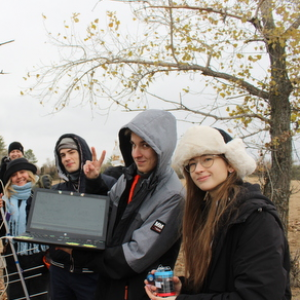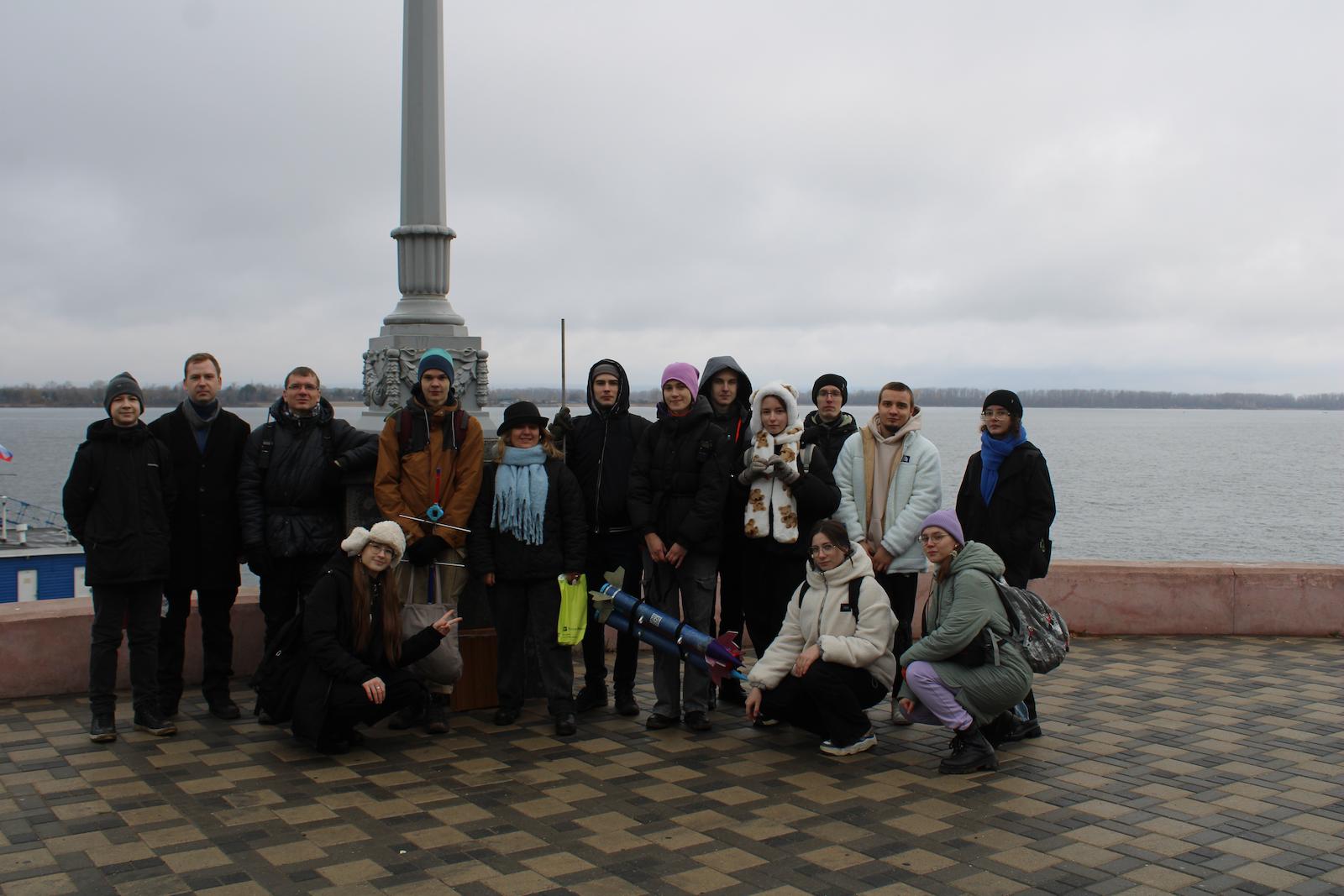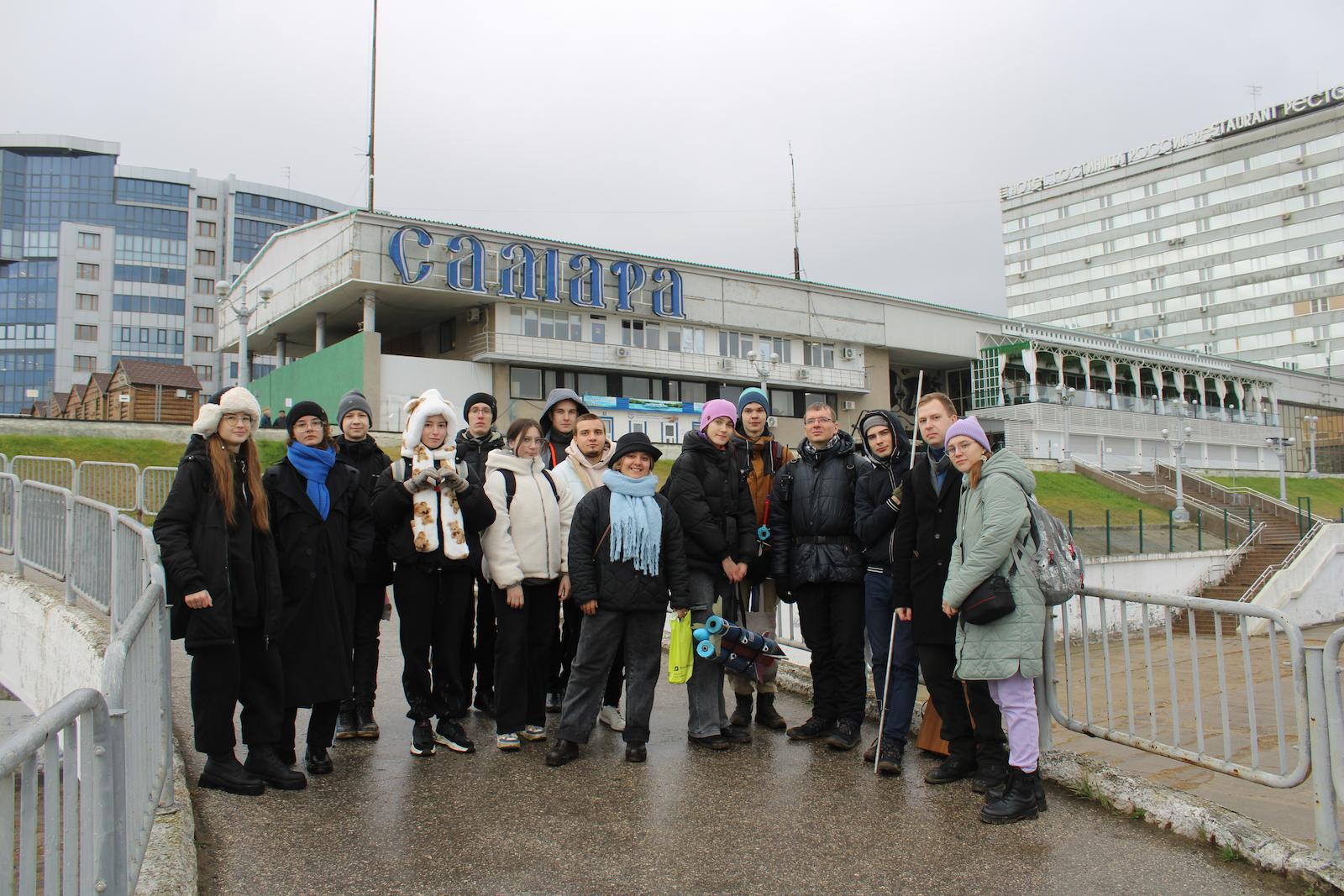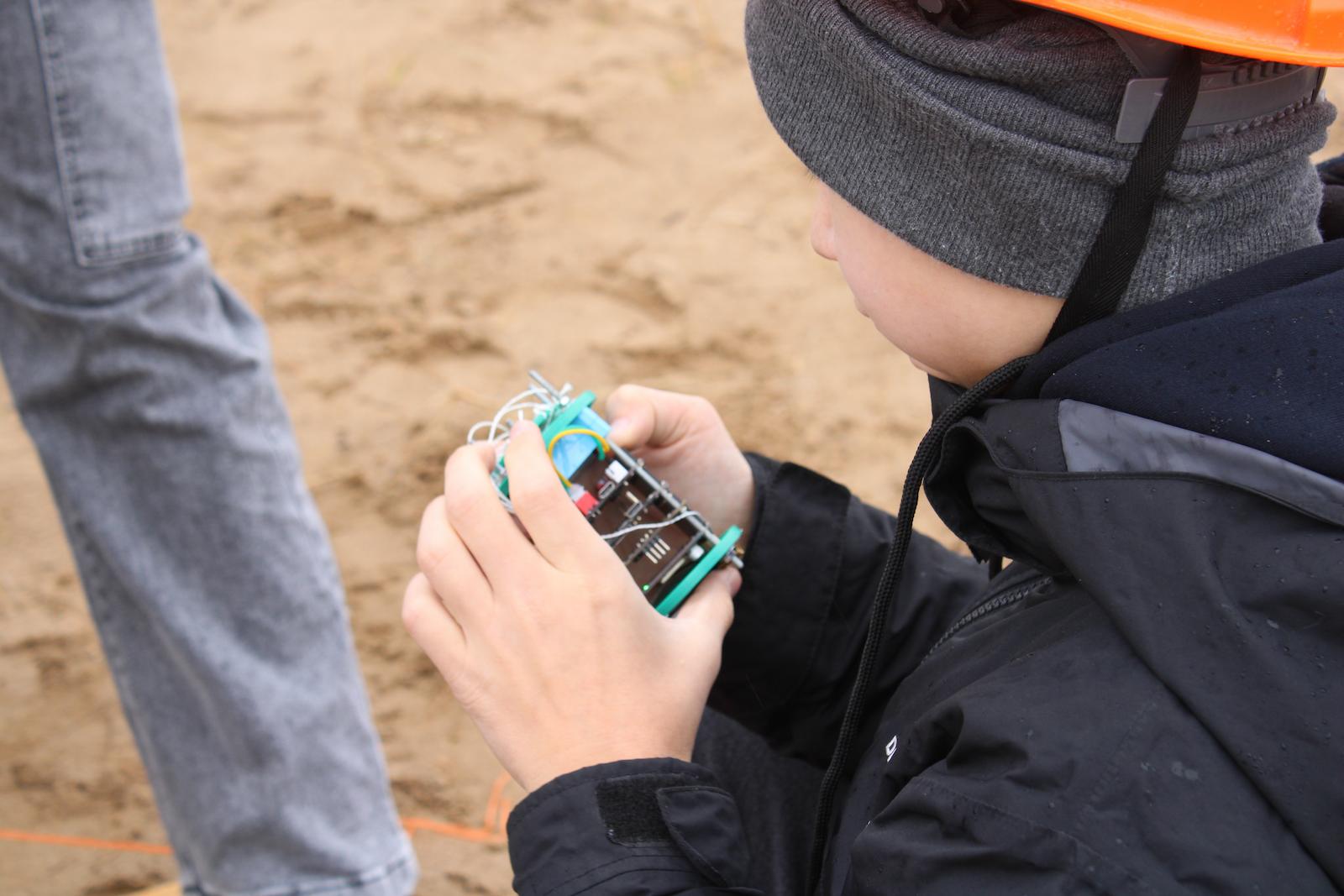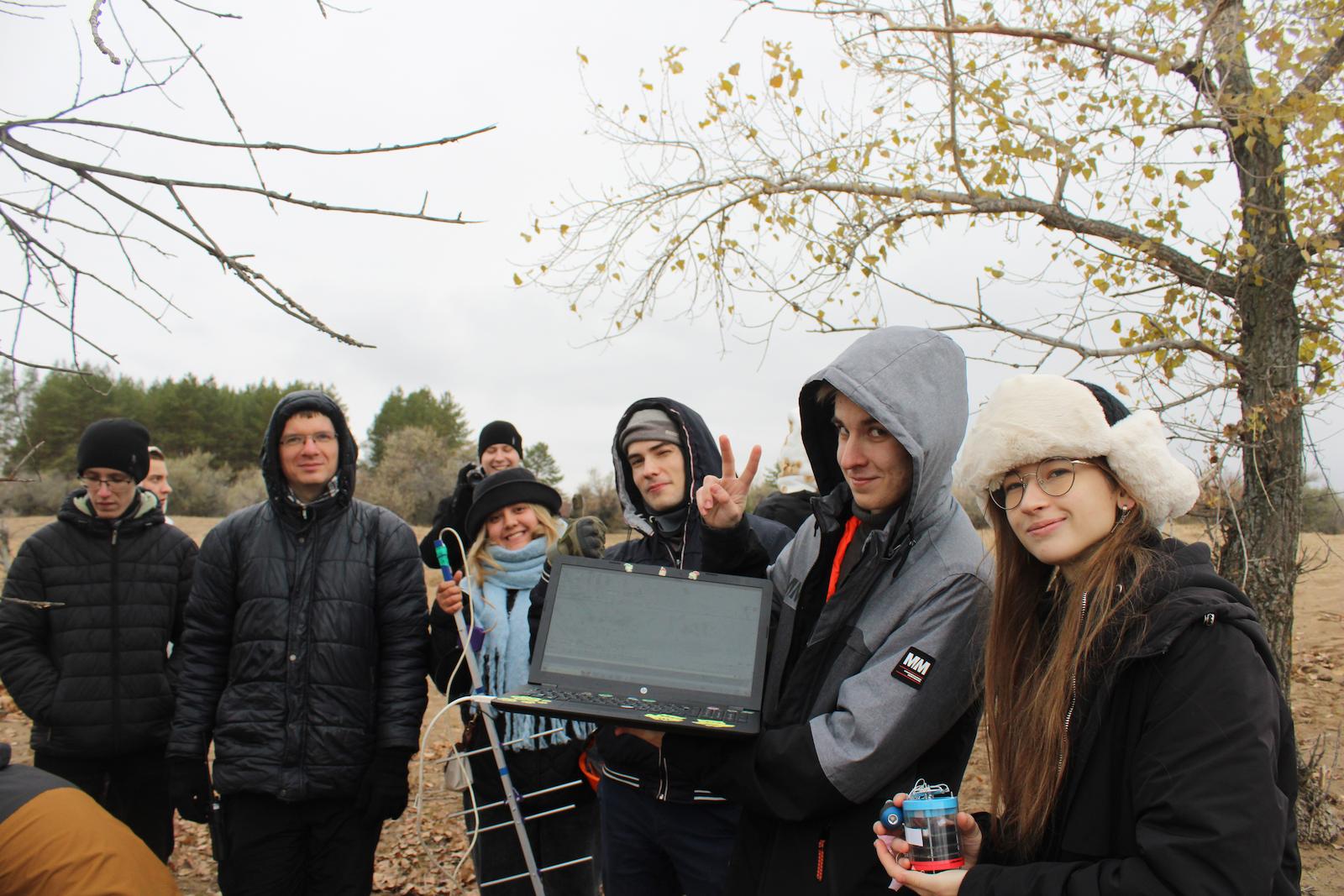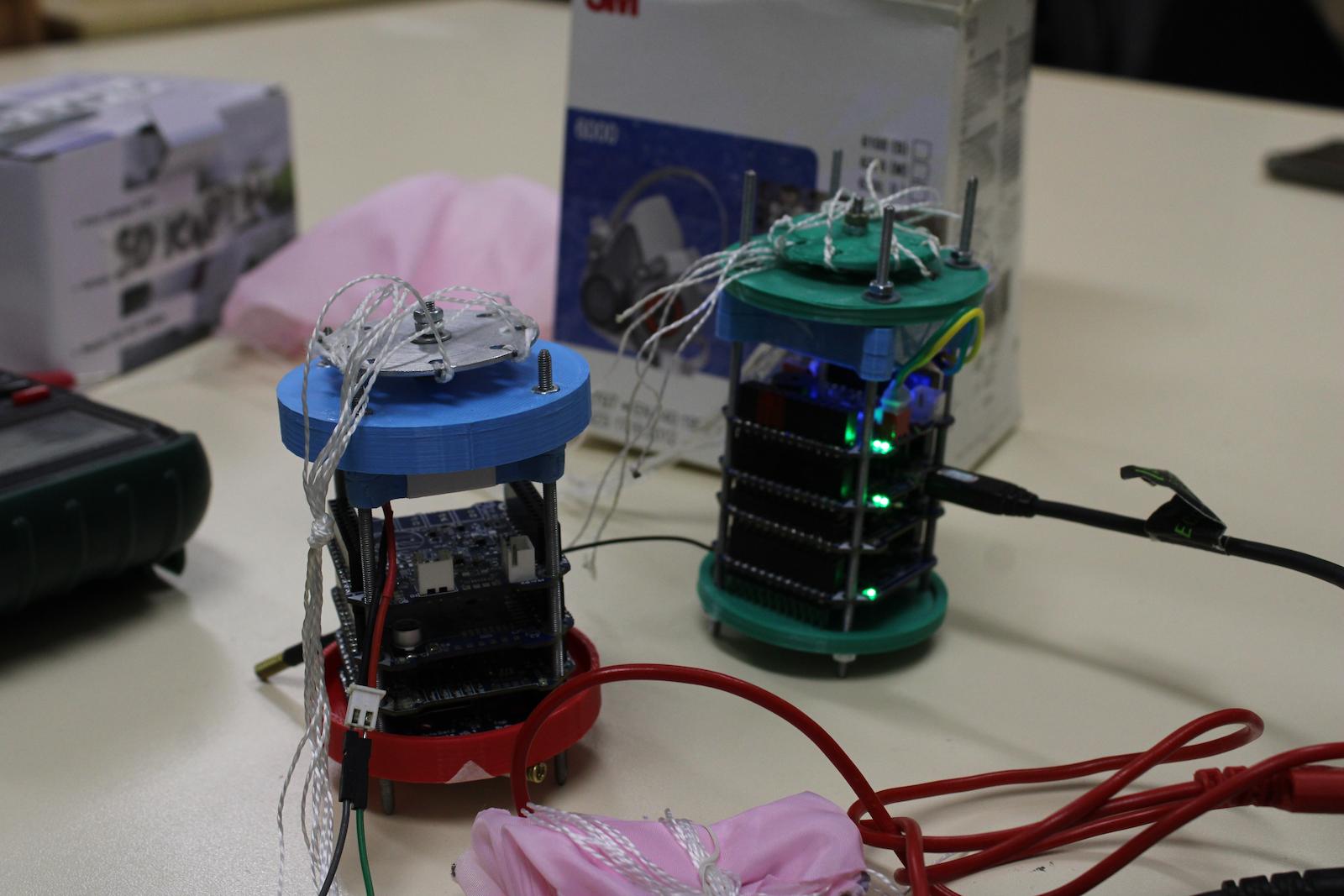The finale of the School of Satellite Engineering “Launch Your Picosatellite”, a landmark event for novice engineers, took place on the Podzhabny island. Small rockets carrying the participants’ devices soared into the sky.
The School started back in September. The participants mainly were junior and senior students of the Institute of Aerospace Engineering, as well as students of the Institute of Informatics and Cybernetics. They were united by their interest in engineering in general and satellite engineering in particular.
At the School, the organizer – Samara University’s Youth Aerospace Instrumentation Club “Cosmic Gradient” – invited the participants to create their own device of picoclass, its weight only about 150 g, in the CanSat format. Literally, a satellite of the size of a soda can. This device is delivered by the small rocket to the height of about 200 m and descends from there to earth by parachute, collecting and sending environmental data to the receiving station. The devices were proposed to be made on the basis of the MiniSat picosatellite constructor developed in the Club, which already has basic onboard systems and only needs to be programmed, as well as a body and a parachute to be made for it.
For almost two months, the participants mastered basics of programming in C, learned how to write programs for microcontrollers, work with sensors and radio transmitters, studied how to design simple parts in computer-aided design systems and prepare them for 3D printing, learned how to make parachutes.
As the result, 3 teams of participants were formed: they could go all the way of a novice satellite engineer and prepare their devices for launching.
The devices were launched in the territory near the University’s yacht club on the Podzhabny island. The participants used rockets also manufactured at the Club “Cosmic Gradient”.
“Launches as part of the finale of the School of Satellite Engineering have been taking place for the third year on rockets created in our student association. This year, almost all launches were carried out normally. Each team managed to launch their own device, test parachutes made at the master class and receive telemetry data. The average flight altitude of the rockets is about 150 meters; the flight duration is about 25 seconds. All the teams worked very harmoniously, helped each other, as well as other teams in preparing the devices for launching and receiving data. I am sure that all the participants received incredible impressions from the launches and a good boost of motivation, to continue engaging in technical creativity”, said Polina Yakovleva, Launch Manager.
Most of the launches were carried out normally, not a single device was lost. The participants received a storm of emotions, as well as the flight telemetry data.
“A samurai has no goal, only a path. This is about the entire school of satellite engineering. It was cool to create the satellite program that worked (!!!) during a real flight. It’s even cooler to watch the rocket with your device take off sooo high (our team’s rocket took off by 153 meters)”, shared Veronika Goryachkina, a participant in the launches.
“The School of Satellite Engineering gave me the opportunity for feeling like a creator; I did not think that I could create a working device. Now I want to make something more complex, try all the processes from soldering boards and programming them to designing and assembling with a deeper understanding and new ways, learn how to work on all the large number of devices that are in “Cosmic Gradient”. It is invaluable experience for a future engineer, and indescribable emotions from the launch itself, thank you!” said Anastasia Buslovskaya, a 1st year student-participant.
“It was unique experience! I’ve learned a lot of various things! The School program included everything: programming, designing and a fun experience! The organizers helped and made us feel comfortable. It was wonderful for me, as an exchange student, to be able to do such a unique job and make new friends in course of the process. Most of all, I liked the master class on creating parachutes. I am very glad that I had the opportunity for participating in this, and I would not mind doing it again!” shared Triana Martinez, a student from Mexico, her impressions.
“These launches make it possible to involve new participants in engineering creativity and extracurricular activities, provide the opportunity for gaining a lot of useful experience and skills, as well as serve as the base for creating more serious devices for the All-Russian Air Engineering School Championship, and later – real spacecraft”, said Aleksey Kumarin, Head of the Club.
Photo: Veronika Goryachkina
 RU
RU  EN
EN  CN
CN  ES
ES 